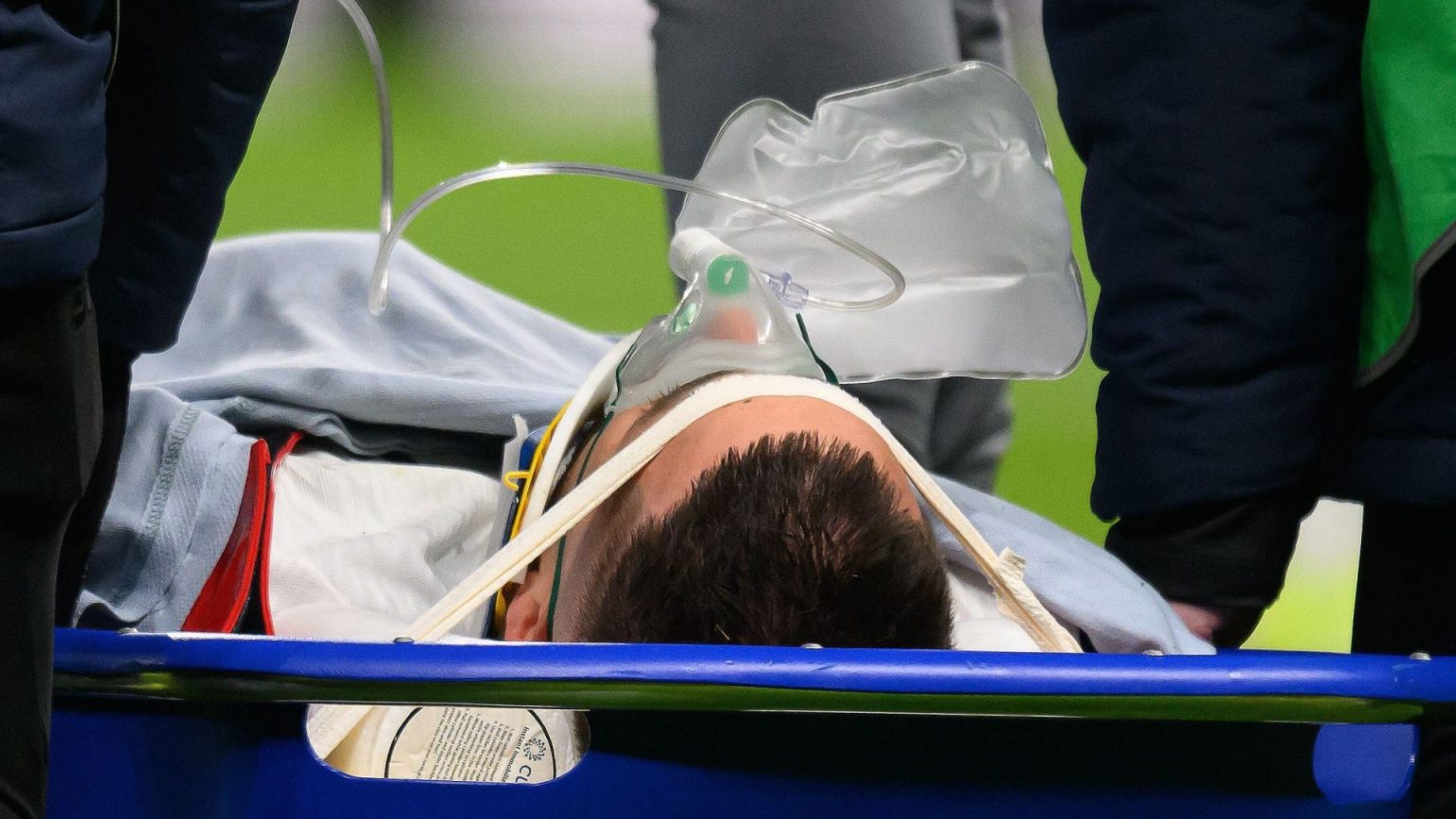Arne Slot, the manager of Feyenoord, expressed his profound dissatisfaction with referee Stuart Attwell’s decision not to issue a second yellow card to Tottenham’s Lucas Bergvall, a decision that Slot believes ultimately cost his team the game. Bergvall, already on a yellow card, committed a foul that Slot deemed worthy of a second caution, which would have resulted in a red card and his dismissal from the match. Not only did Attwell allow Bergvall to remain on the field, but the Tottenham player then proceeded to score the winning goal, a sequence of events that left Slot incredulous and frustrated. He argued that the referee’s decision had a “huge impact” on the result, emphasizing the perceived injustice of the situation.
Slot’s criticism extended beyond the specific non-call for the second yellow card. He also questioned the rule requiring a player who receives medical treatment on the field to leave the pitch for a short period. This rule, he contended, unnecessarily disrupts the flow of the game and creates vulnerabilities. In this particular instance, Feyenoord conceded the decisive goal while momentarily shorthanded due to this rule, further compounding Slot’s frustration. The fact that the goal was scored by the very player who, in Slot’s view, should have been sent off added another layer of bitterness to the defeat.
Slot’s post-match comments revealed his strong conviction that Attwell himself recognized the gravity of the situation. He speculated that even the referee must have been thinking, “Is this really happening, with him scoring?” after Bergvall found the back of the net. This remark underscores Slot’s belief that the referee’s decision was not merely a matter of differing interpretations but a blatant oversight with significant consequences. The incident clearly left a deep impression on Slot, who repeatedly emphasized the unfairness of the outcome.
The conversation between Slot and the match officials after the game further highlighted the discrepancy in their understanding of the incident. The fourth official offered an explanation for why the second yellow card wasn’t shown, suggesting that the foul did not prevent a promising counter-attack. This explanation, however, seems to have done little to assuage Slot’s concerns. When Andy Robertson, Liverpool’s captain, later inquired with the referee directly, he received the same explanation – that the challenge wasn’t deemed reckless enough to warrant a second yellow. This rationale further fueled Slot’s discontent, as he clearly disagreed with the referee’s assessment of the foul’s recklessness.
The disagreement over the interpretation of the foul highlights the subjective nature of refereeing decisions. While the rules provide a framework, the application of these rules often depends on the referee’s judgment in the heat of the moment. In this case, Attwell evidently did not perceive Bergvall’s challenge as reckless enough to merit a second yellow card, a decision that ultimately proved decisive in the outcome of the game. Slot, on the other hand, strongly believed that the challenge was worthy of a second caution, arguing that it was both reckless and had a significant impact on the game’s result.
This incident underscores the ongoing debate surrounding the consistency and fairness of refereeing decisions in football. The subjective nature of such calls often leads to controversy and frustration, particularly when they have a direct bearing on the outcome of a match. While the implementation of VAR (Video Assistant Referee) has aimed to reduce such controversies, the Bergvall incident demonstrates that even with the assistance of technology, subjective interpretations and human error remain part of the game. From Slot’s perspective, the referee’s decision not only cost his team the game but also highlighted the need for greater clarity and consistency in the application of the rules, particularly regarding the issuance of yellow and red cards.











